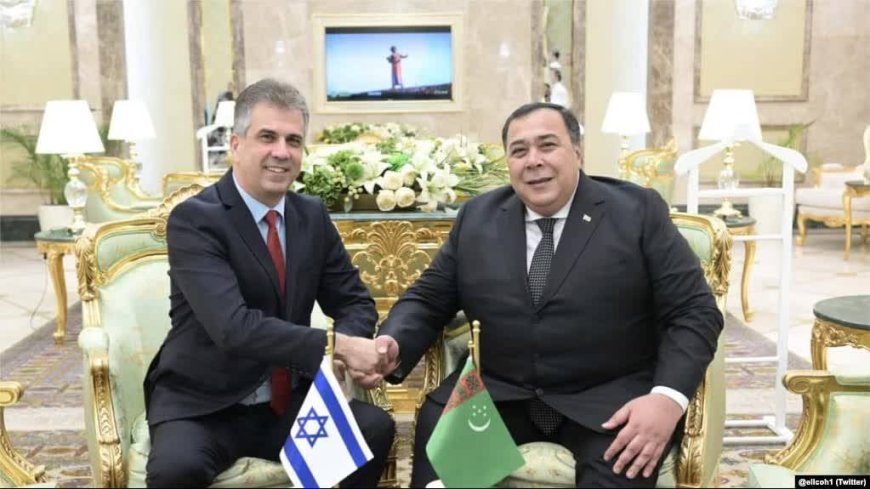What does the establishment of an embassy by the Zionist regime in Turkmenistan mean?
On Thursday, Israeli Foreign Minister Eli Cohen arrived in Ashgabat, the capital of Turkmenistan, to officially inaugurate the Zionist regime's embassy there. This embassy—or, more accurately, the nest of espionage—will be the Zionists' closest diplomatic outpost to the Iranian border, just ten miles away.

Despite being a predominantly Muslim nation, Turkmenistan has had diplomatic ties with Israel since 1991 and recently established a temporary embassy in the occupied territories. The inauguration of the Israeli embassy in Turkmenistan, in light of the emerging net global dynamics, sends mixed messages to the many players in this intricate global conflict. For quite some time, Turkmenistan's neutral stance has been well acknowledged. It is too soon to tell whether or not there has been an obvious tilt towards the west on the part of the Turkmen leadership. The opening of the Zionist embassy in Turkmenistan, Moscow's traditional backyard, might also be seen as a warning message to the Russian administration, given the tense relations between the Israeli government and the Kremlin over the Ukrainian crisis.
Russia has long monitored developments in Central Asian politics and society with keen interest. It is natural for nations in Central Asia to be mindful of Russia's geopolitical sensitivities; however, Turkmenistan's desire to establish diplomatic ties with Israel is something out of the norm. Given the Republic of Azerbaijan's antagonistic attitudes vis-à-vis Israel and the development of a strategic connection with Tel Aviv, it is intriguing to wonder if Israel intends to utilise Ashgabat as a spy base against Tehran too or whether Turkmenistan is only interested in economic gains from Cohen's recent visit. The Islamic Republic of Iran must give careful consideration to these dangerous measures. Turkmenistan's economy is highly dependent on China since natural gas exports to China are the country’s primary source of income. There is an explanation, albeit far-fetched, for the close ties between Turkmenistan and the Zionist regime, and that is that China may be sending Russia a message to end the crisis in Ukraine as soon as possible.
Let us assume, for the purpose of the argument, that the abovementioned hypothesis is correct:
It is also necessary to examine Turkey's role in this issue. With the presidential elections approaching, Erdogan is trying to present winning cards in various fields. Turkey, which is a member of NATO, has frequently voiced its ambition for the creation of a Turkish Corridor. It should be seen whether Turkey, Azerbaijan, and Turkmenistan, with the political backing of the Zionist regime, may want to speed up the Turkish Corridor.
In addition, the Southern Gas Corridor will provide Europe with access to Turkmenistan's gas supplies and the energy reserves of the Caspian Sea, thereby decreasing Europe's energy vulnerabilities and making Turkey a regional gas hub, all of which are detrimental to Iran's national interests.












































